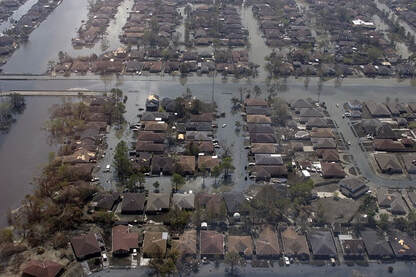|
By now, it should be universally accepted that no one can know precisely when churches will be permitted to reopen their doors to groups of more than 10 people. Critics may criticize for any number of reasons, but this should not be one of them. Also, even with the uniqueness of the COVID-19 situation, any time we deal with uncertainty on this scale, we do well to prepare for as many different scenarios as possible. That said, I am grateful for the work others have done to forecast trends and ideas of where the Church may be post-coronavirus. Having done some of my own research, I'd like to add a few thoughts for church leaders to consider.
The 80% rule (or 70% rule) will probably become the 50% rule (not the 60% rule). You understand your worship space feels full at about 70-80% capacity. Some predict that post-coronavirus this percentage will fall to 60%. Based on researching policies at AMC Theaters and Regal Cinemas and others, 50% appears more likely. This has implications for churches who are designing buildings. If we build what we had previously designed, we will basically lose 60 usable seats if 50% is the new normal. It also has implications for mobile churches. Depending on how your rental agreements are structured, you may have to rent more ballrooms, or more classrooms, and this could drive up your costs. "Public Health Officials" hold the trigger. Not much is said about how we will know when we can resume gatherings, probably because we are at the mercy of the government. The NBA, NHL, and other entities identify "public health officials" as having sole authority about when things reopen. For churches, this is significant, because we appear to have mixed feelings as to our level of willingness to comply with what these officials hand down. Let us factor in the reality that these officials are not just cancelling public worship, but also any gathering of any real size. This is a good talking point for conversations with members. It is essentially out of our hands. People will give toward this but not that. Some are postulating how giving will be affected by COVID-19, just in broad terms of how much it will decrease. Admitting that none of us know anything about the future here for sure, it feels that giving could hold steady, decrease less than expected, or even increase depending on priorities. Layoffs, reduced hours, and basically having less residual income will change things. It feels like people will likely prioritize ministry (difference-making) with immediate fruit, community involvement, personnel (who are making a difference, loving, and serving), missions, and technology over brick-and-mortar, utilities, property upkeep, and so on. This will have budgeting implications. I will save my other thoughts on future trends for a later post. Hope this helps! If you have a sense of where things are going for churches after COVID-19, please feel free to share it in the comments.
0 Comments
 As we continue to lead God's people in an increasingly post-Christian environment, common misunderstandings about our faith can create unhelpful distance between ourselves and the people we are trying to reach. It is my hope that the insights in this series of posts help bridge that gap in a way that promotes fulfillment of the Lord's Great Commission. When researchers test their hypotheses in view of establishing theories, they will set forth various predictions that should come to pass if their hypotheses are correct. If their predictions do not come to pass, the theory may need adjusting or the assumptions that led to these predictions may be faulty. For the present discussion, here's what this means. Non-Christians will sometimes point to the moral failure of a Christian leader as evidence that Christianity itself is a sham. As Christians, we would immediately recognize the disastrous effects of moral failures among our leaders, and one of these certainly is the impact these failures have on the unbelieving community. The idea, though, betrays a myth about Christianity - a faulty prediction. The faulty prediction would be: If Christianity is true, Christian leaders will never fall. This is a non sequitur. This opens up the issue of theory versus practice. In theory, Christ always provides a way to escape temptation, so we should be able to live our lives without sinning (1 Cor. 10:13). In practice, though, there are many times that the spirit is willing, yet the flesh is weak.. In such times, we do not take the path of escape that God has provided. The Bible is very clear that believers retain a sin nature up until such time as we receive our glorified bodies (Phil. 3:21, e.g.). Until then, we will face a war in our members (Rom. 7:23 ff.). We have choices. We can put on the new man or the old man (Eph. 4:22-24). The reality is that the truth of Christianity does not hinge on the morality of Christian leaders. The fact that we retain this sin nature almost means that all of us are hypocrites to some degree. Even though we are not always true to our own profession of faith, the weakness of our sinful flesh does not mean that the Christian faith is hogwash. Christian doctrine does not pretend to teach that Christians, once saved, will never again sin (John 13:10). Therefore, to dismiss Christianity on the grounds that some of its proponents fail is logically unsound. That said, let us provoke one another to good works (Heb. 10:24). Let us give the more earnest heed to the things which we have heard, lest at any time, we should let them slip (Heb. 2:1). And let our light so shine that men may see our good works and glorify our Father which is in Heaven (Matt. 5:16). The more our walk matches our talk the less explaining of our failures we will have to do before unbelievers and the more Gospel-sharing we will be able to pursue (1 Cor. 9:27).
An angle that few if any seem to take is to examine the issue from the perspective of overall church unity. It just so happens that I am guiding my church through 1 Corinthians in this modern situational context; so church unity is obviously on the brain. Two questions emerge: (1) Can you have spiritual unity without political unity? and (2) What does preserving spiritual unity look like in such a politically divisive age?
 As I write this, the southeast US is in the heart of hurricane season, and the bands of Hurricane Dorian are beginning to dump rain showers here in the Carolinas. The storm has already claimed 20 lives in the Bahamas and devastated entire villages and communities. My wife and I moved to Fayetteville to begin ministry at Grace Baptist on October 1, 2016. Hurricane Matthew (“the most powerful storm of the 2016 Atlantic Hurricane season” according to weather.gov) made landfall on October 8 about 3.5 hours south of us in McClellanville, SC. As it travelled northward, it washed out roadways, flooded homes, and impacted families who still to this day have not been able to rebound. Then last year, Hurricane Florence made landfall in nearby Wrightsville Beach, NC on September 14. Florence did over $300,000 in damage to our church. We had a seven month old baby, so we evacuated to Charlotte with family. (Experience with Matthew taught us that it is common to have power outages and boil water advisories in Fayetteville - not workable for an infant.) There were mandatory evacuations in our city for a one-mile radius out from the Cape Fear River. It was a significant storm. Your church and community may have been devastated by a hurricane, a tornado, a fire, (God forbid) an active shooter situation, or some other tragic disaster. It is in moments such as these that we can be the hands and feet of Jesus and love our neighbors for the glory of Christ. Here are some ideas, and I’d love it if you would share some of your own in the comments.  Whenever I speak as a guest, one of the first things I do after giving my name and thanking my hosts for having me is to tell my salvation testimony. Before anyone stands before an audience and opens the Word of God, it is my belief that the presenter should offer his salvation testimony. As pastors, shepherds of God's flock, overseers of Christ's body, it is vital that our people hear regularly our testimony of how Christ saved our souls. And here are a few of the results you can expect. |
AuthorPastor Billy Shaw is a full-time pastor, husband, and father with a passion for helping other pastors. Archives
August 2020
Categories
All
|

 RSS Feed
RSS Feed